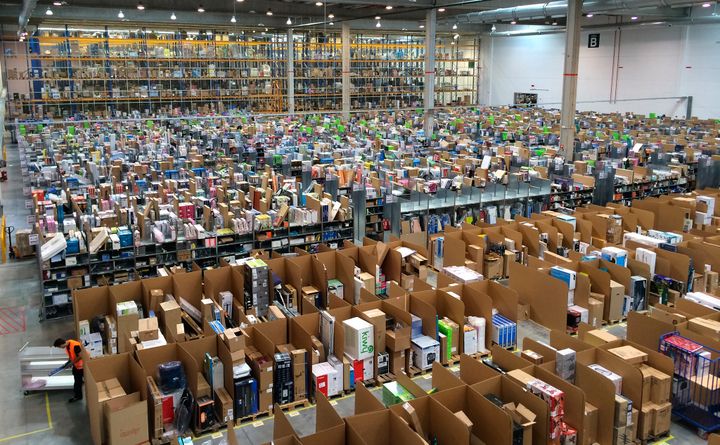
There have been a few public complaints about working conditions at Amazon, that online retail giant. Investigations by Mother Jones and Gawker, among other publications, have revealed that some employees are unhappy with the long hours, the monotonous work and other aspects of routine shelving at Amazon. When Amazon responds to these complaints, they say that they make sure everyone has adequate breaks and special procedures to deal with extreme heat.
No matter how good the working conditions, it must be difficult for a human to work in a warehouse shelving items for dozens of hours a week. The exacting work, the physical nature of lifting and moving items, and the quotas that need to be met are just some of the pressures people have to deal with on top of typical issues such as commuting time and pay. What to do?
We highlight Amazon here because the company is turning to robots as a partial answer. As these automatons get smarter, they become more adapt at replacing these jobs and (we hope) giving the people unsatisfied with the work an opportunity to find something else. The company has just opened up a contest called the Amazon Picking Challenge, which will take place later this year.
"It is our goal to strengthen the ties between the industrial and academic robotic communities and promote shared and open solutions to some of the big problems in unstructured automation," Amazon writes on the challenge website. "This competition will challenge entrants to build their own robot hardware and software that can attempt simplified versions of the general task of picking items from shelves. The robots will be presented with a stationary lightly populated inventory shelf and be asked to pick a subset of the products and put them on a table."
As MIT Technology reports, some of the work has already been replaced by robots. Amazon bought a set of these from Kiva Systems (currently a subsidiary of Amazon) in 2012 for $678 million, in a bid to give its workers shorter walking distance to find products. But humans are still more reliable. Could the robots do better?
Amazon hopes so. It has a series of tasks that the robots must pass to make their creators eligible for some $26,000 in prizes. Among them: "object recognition, pose recognition, grasp planning, compliant manipulation, motion planning, task planning, task execution, and error detection and recovery."
Fast-sorting robots would have applications in many other fields besides selling. Construction could suddenly become a lot easier as robots are able to pick out the right materials for workers ahead of time. The routine aspects of moving stone and brick across a field could be sent to the robot, while the humans focus more closely on the design.
Another spot robots could help out, if they were able to recognize patterns of other sorts, would be in matters such as traffic. Putting a robot to hold the stop sign ahead of construction workers on the side of a highway would be safer and less tedious for those that are involved in the work. Similarly, if there is an accident on a downtown street, the robot could direct traffic instead of the human.
We should be cautious with the technology, however; robots will need to prove their worth in their fields before being fully deployed. But if it works out, hopefully it will free up people to do less repetitive jobs. How do you think this would be possible?
Top image: An Amazon warehouse. Credit: Wikimedia Commons








